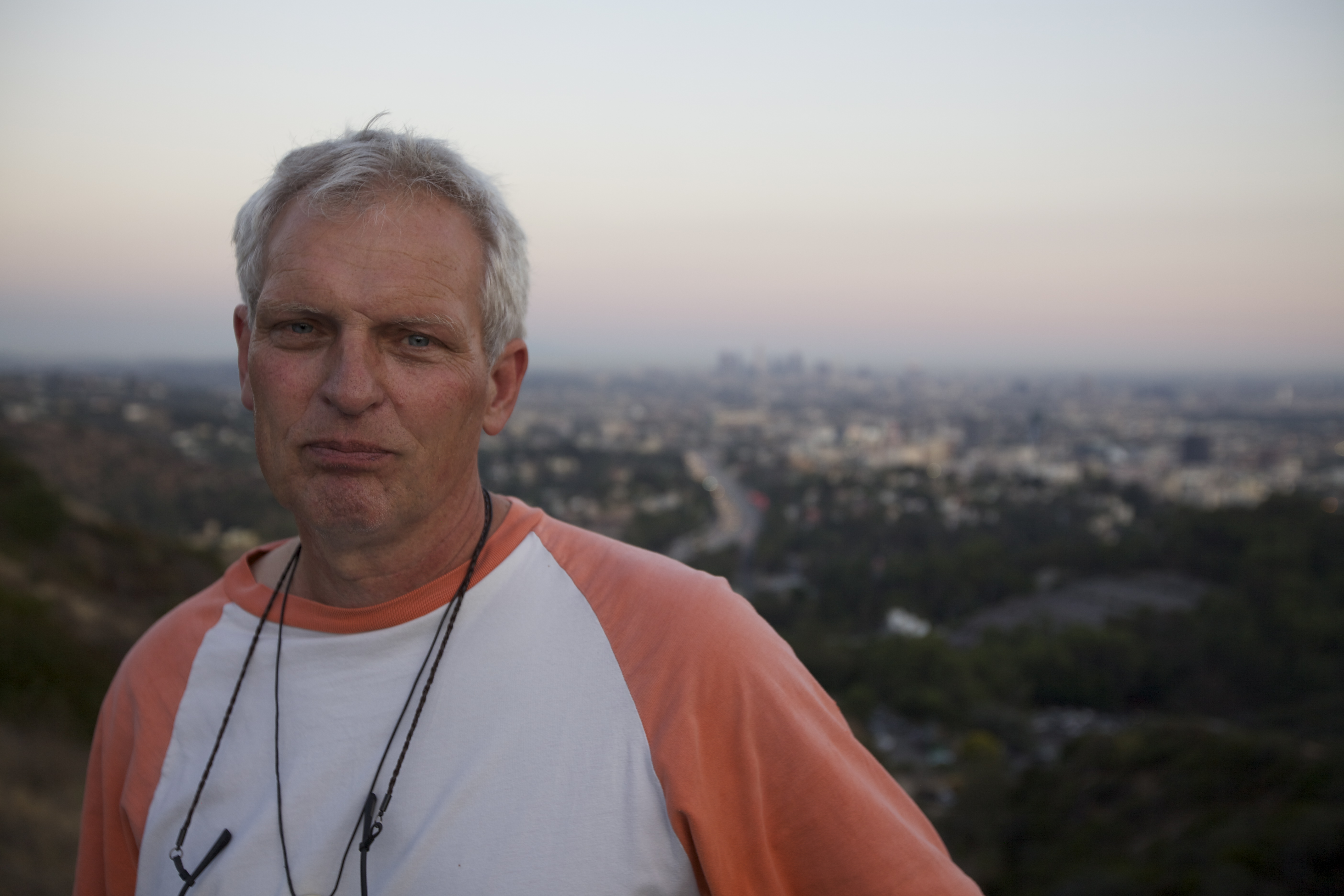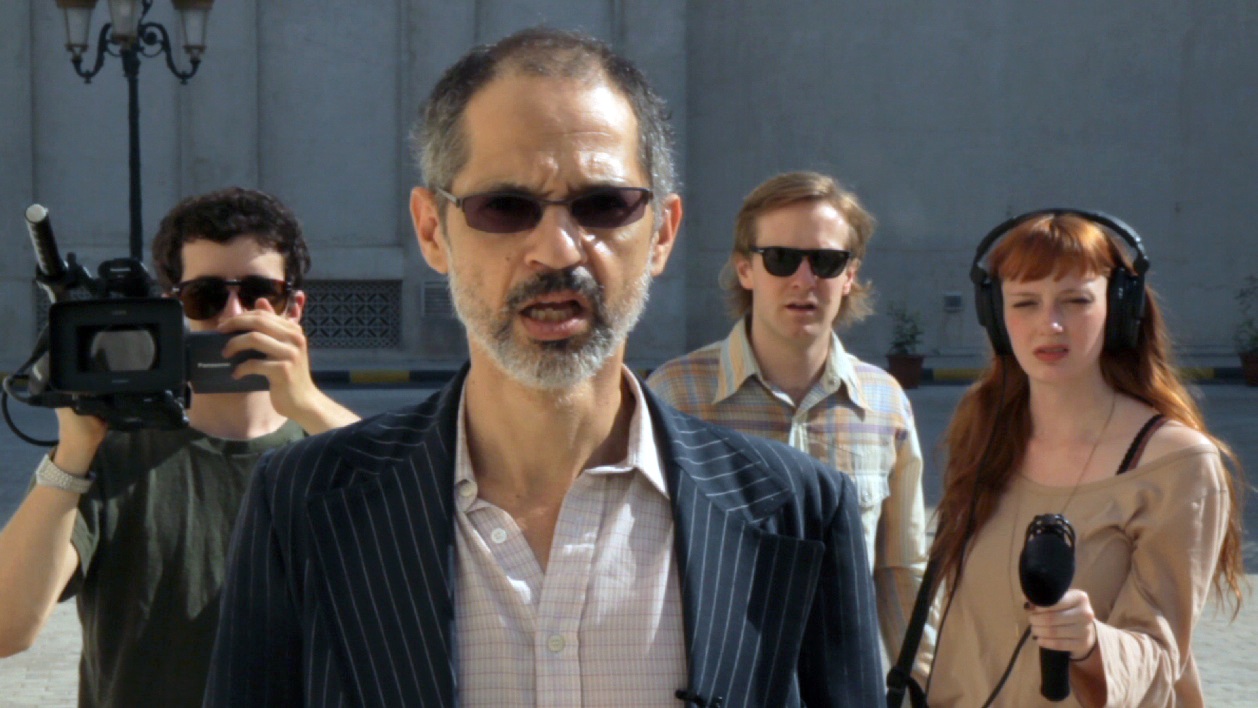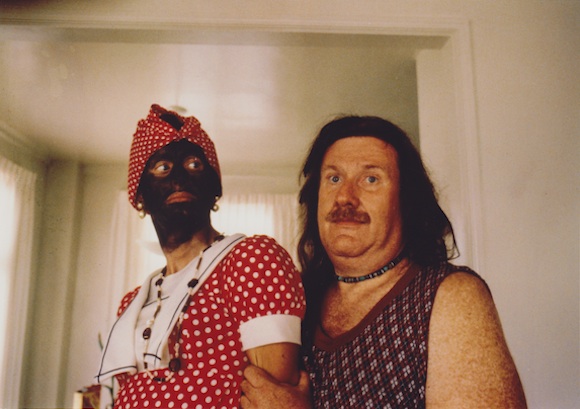For this special New York City visit, we are pleased to host Jon Bang Carlsen who will treat us to clips from several of his innovative documentaries throughout the years. You can read more about his radical approach to staging the truth in this excerpt from Ian Aiken’s “Encyclopedia of Documentary Film”. Bang Carlsen also acted in Lars von Trier’s film Epidemic (1987).
“Life is what happens when you’re busy making other plans. And so are films.” (Jon Bang Carlsen, Addicted to Solitude)
Jon Bang Carlsen is a filmmaker in his sixties who – even though he has the status of a living legend in his country – continues to search and innovate like a young debutant. He started in the 1970s with films with actors, and then migrated to that no man’s land at the border between documentary and fiction. He lived for eight years in South Africa, he filmed a lot in Ireland and the United States, and now he lives on an isolated farm in Denmark. Carlsen has the appearance of a gentle athlete trying to tackle reality. His method consists of recreating in front of the camera scenes that his absolutely real characters could have lived, or that the director had observed while scouting. Everything takes place in plain sight and his film How to Invent Reality explains his modus operandi in detail. The author is always somewhat present in the frame, because, he explains: “My films are not the truth, they just express the way I feel the world. That’s all.”
From the lines above, you might think that Jon Bang Carlsen is the egotistical type of director, only interested in his shadow. Not true: there is a type of affection in his films, full of humor towards his characters, be them Irish peasants long past their first youth and still hoping to get married, or white farmers in South Africa, confused and alone after the fall of apartheid. Between the rebel young people of Los Angeles, their parents and Carlsen, a moving relationship forms in his latest film, Just the Right Amount of Violence, which we’ll show a clip from. He has made over two dozen films which tackle vital themes like the toxic presence of hate, the manipulation of reality, and adolescence as a territory that should be protected. He is very interested in filmmaking as a process and in the relationship with the people, which explains why his films are so hard to place into a category or another.
 Jon Bang Carlsen was born on September 28, 1950, in Vedbæk, Denmark. Both his parents were sculptors and the fact that he was brought up in an environment in which drawing was an integral part of everyday life, helps to explain the distinctive visual style that characterizes both his feature and documentary films. He worked in theater, then entered the National Film School of Denmark, from which he graduated in 1976. He has published books of essays and poetry and has lectured extensively at film schools and universities throughout Europe. He has won numerous national and international awards for his films. His feature films include Next Stop Paradise 1980, Ophelia Comes to Town 1985, Time Out 1988, and Carmen and Baby Face 1995. He and his Irish wife have four children.
Jon Bang Carlsen was born on September 28, 1950, in Vedbæk, Denmark. Both his parents were sculptors and the fact that he was brought up in an environment in which drawing was an integral part of everyday life, helps to explain the distinctive visual style that characterizes both his feature and documentary films. He worked in theater, then entered the National Film School of Denmark, from which he graduated in 1976. He has published books of essays and poetry and has lectured extensively at film schools and universities throughout Europe. He has won numerous national and international awards for his films. His feature films include Next Stop Paradise 1980, Ophelia Comes to Town 1985, Time Out 1988, and Carmen and Baby Face 1995. He and his Irish wife have four children.
 Caveh Zahedi received a B.A. in Philosophy at Yale University and an M.F.A. in Film Production at the UCLA School of Film and Television. His feature-length films include A Little Stiff (1991), I Don’t Hate Las Vegas Anymore (1994), In The Bathtub of the World (2001), I Am A Sex Addict (2006), and The Sheik and I (2012).
Caveh Zahedi received a B.A. in Philosophy at Yale University and an M.F.A. in Film Production at the UCLA School of Film and Television. His feature-length films include A Little Stiff (1991), I Don’t Hate Las Vegas Anymore (1994), In The Bathtub of the World (2001), I Am A Sex Addict (2006), and The Sheik and I (2012).







